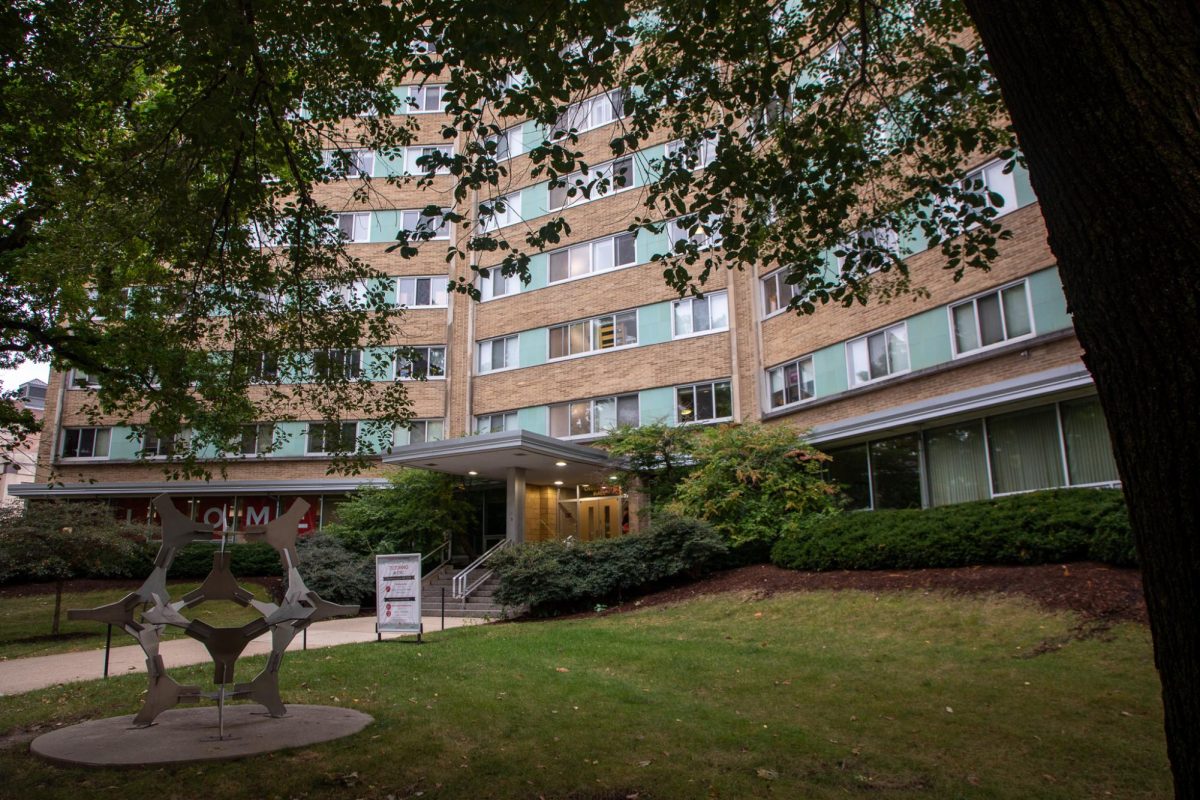The University of Wisconsin has enrolled 8,516 freshmen for the fall 2024 semester, its second-largest class in school history, according to UW News. The latest summer 2024 housing analysis reports the university’s residence halls in total have a design capacity of 7,724 beds, while the operating capacity is 8,849, according to UW News.
The university does not require freshmen to live on campus, yet the residence halls have maintained an average occupancy rate of 104% from 2010 to 2023, according to the Student Housing Market and Affordability Analysis.
In Chadbourne Residence Hall, some of the building’s study lounges have been transformed into additional dorm rooms and the kitchens next to the lounges have been closed off to give residents privacy, Residential Operations at University Housing director Brian Ward said. Ward said that the school aims to use available community spaces to accommodate growing enrollment.
“We [the university] came back and said we need to grab a few more of these lounges to make sure that we can still offer all the freshman students that are telling us they want to be at UW–Madison,” Ward said.
Students in the converted lounges are able to use their attached kitchens, excluding the stoves, which have been turned off, Ward said.
To address the overcrowding, the university has implemented accommodations such as adding extra beds in existing rooms that have space, Ward said.
Ward said the university is aware of certain rooms that are not ideal for triple occupancy and has reverted some back to doubles.
“To be honest, the students are usually very excited about these [converted] spaces because they’re really nice rooms,” Ward said. “They’re sometimes bigger, and they’re a great location … students generally really enjoy the space.”
Ward said students without a kitchen on their floor would still have access to kitchens on the floors above or below. Each residence hall is equipped with at least one kitchen, according to the UW Housing website.
UW freshman and Chadbourne Residence Hall resident Lauren Anderson said she would have been a bit disappointed if she did not have a kitchen or study lounge on her floor.
“For my floor, I’m lucky enough that it [the conversion] hasn’t happened yet… we still have our den and our kitchen,” Anderson said. “I do have friends on other floors that say they don’t have kitchens, so sometimes they’ll come up here and use ours.”
Anderson said she doesn’t remember being notified by the university, but she did get a text from her roommate that they were placed on a floor that still had a kitchen. But, Anderson said she believes her roommate had to search for that information.
Ward said part of the reason for housing changes is a recent adjustment to the FAFSA system. The formula for determining financial aid eligibility was altered this past year, according to the Office of Federal Student Aid.
Many students received delayed notice of their financial aid eligibility, causing some to commit to UW later than in previous years and pushing back the typical timeline of university housing assignments, Ward said.
Ward said that a key difference between housing at UW and other universities is that students placed in lounges here will not be moved throughout the year, allowing them to stay in the same space, which minimizes disruption.
Students that made the decision to come to campus later, or were taken off the waiting list, were told that they were likely to be put into a lounge, but would be allowed to stay there all year, Ward said.
Ward said his team works very closely with the Off-Campus Housing Services Office, which was created by University Housing last year and provides students with the resources to make informed decisions about moving off campus, according to the student housing analysis.
While immediate modifications have been made to accommodate current students, long-term solutions are necessary to ensure that future cohorts do not face similar challenges, Ward said. The university has consistently advocated for more housing to allow dorms to operate as originally intended.
“We would love to have more housing so that we can get back to operating our buildings the way they were built for and designed to,” Ward said. “… We do have projects that we’re constantly looking for approval from the state to grant and finance for the construction of new buildings.”
One significant solution UW is proposing to address its housing crisis is a state project aimed at constructing new residence facilities that could increase campus capacity by up to 2,000 beds, according to the student housing analysis.
This initiative, however, requires multiple layers of approval before it can proceed, as the university lacks the authority to commission or construct new housing independently, according to the student housing analysis.
The UW Board of Regents approved this project request Aug. 22 and incorporated it into its six-year capital development plan and the upcoming 2025-27 state biennial budget request, according to the request document.
For the project to move forward, it will need the endorsement of Gov. Tony Evers, as well as bonding authority for the construction, according to the student housing analysis.
The funding for these new facilities would come entirely from student room rents and dining fees, ensuring that no state funding or taxpayer money is involved in the project, according to the student housing analysis.








